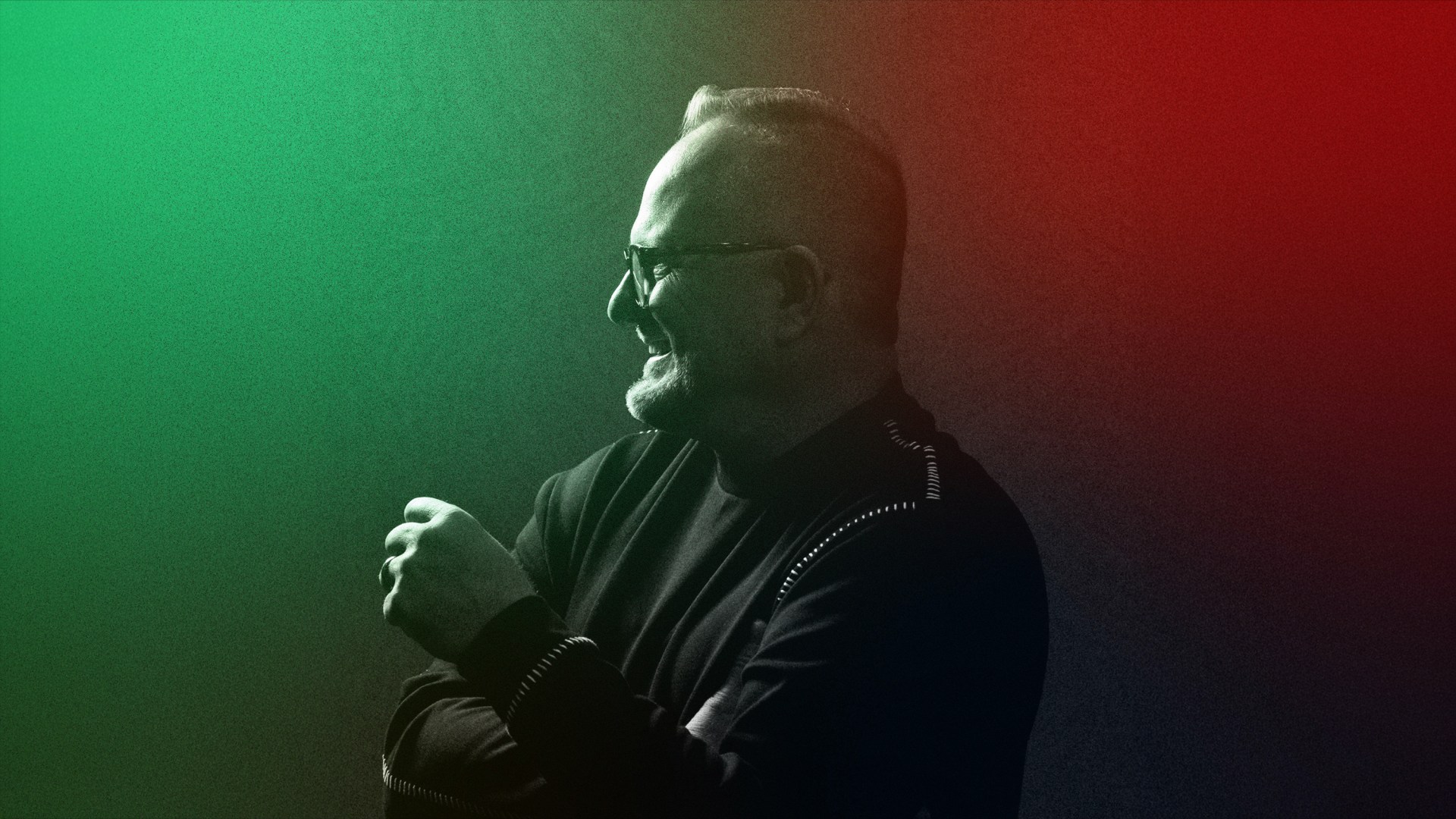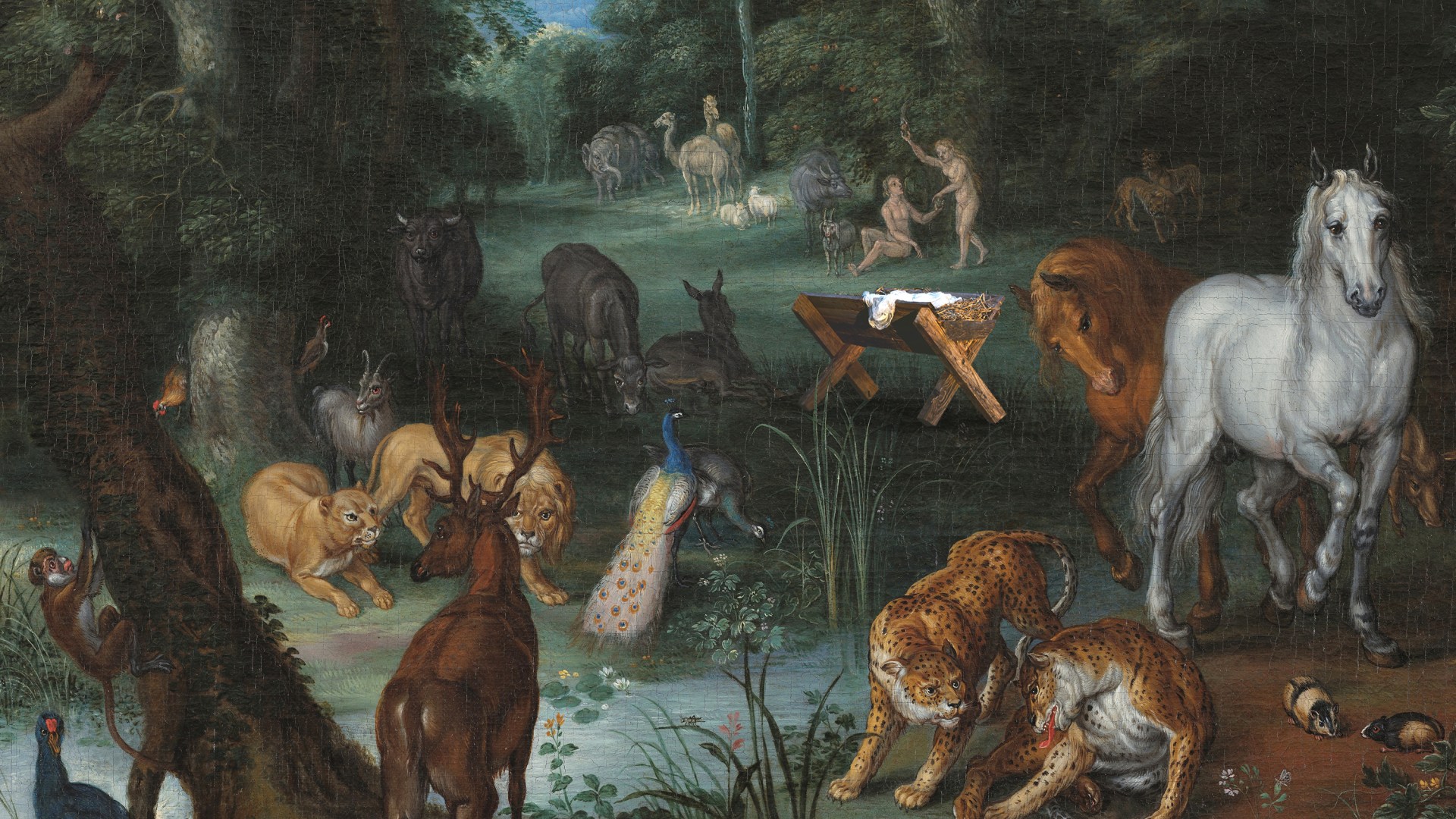For Marcos Witt, writing Christmas music is about more than capturing seasonal sentimentality or warm memories. It’s about creating original music that glorifies God, said the beloved Latin gospel musician and worship leader—even during the Christmas season, when familiar tunes play on repeat.
“It says in his Word, ‘Sing a new song to the Lord,’” Witt said, quoting Psalm 96:1 “It doesn’t go beyond that.”
Witt has produced some of the most popular contemporary Christmas songs in Latin America. His originals have become standards, incorporated into the collection of tried-and-true carols sung by many Christians in the region. Songs like “Es Navidad” and “Nada Especial” appeal to Spanish-speaking evangelicals looking for alternatives to traditional Catholic carols like “Mi Burrito Sabanero” or “Los Peces en el Río,” which emphasize saints and the Virgin Mary.
Audiences unfamiliar with Witt’s worship songs now recognize his holiday music. Christmas music is just one facet of Witt’s expansive discography, but it has provided opportunities for the former missionary kid to reach new listeners.
Witt released his first Christmas album, Es Navidad, in 1996. The title track has remained one of the most popular modern Christmas songs among Spanish-speaking audiences, establishing Witt as a musical icon with broad crossover appeal and a unique position in the Latin American music industry. In November of this year, he released “Nació La Luz,” an unexpected collaboration with prominent Mexican actress and singer Thalia.
Over the course of Witt’s 38-year career, he has sold over 27 million copies of his albums (he has released more than 40), earning six Latin Grammys and two Billboard Awards. Through CanZion, his record label, Witt has cultivated and launched the careers of Latin American artists such as Danilo Montero, Jaime Murrell, and Jesús Adrián Romero. Now based in the Houston area, he is one of the most influential evangelical leaders among Hispanics in the United States.
“To talk about Marcos Witt is to talk about someone who brought [Christian music] to the Hispanic mainstream,” said Pablo Aguirre, an Ecuadorian music producer and member of the Latin Recording Academy.
Es Navidad (It’s Christmas) transformed the way Latin American evangelical churches celebrate the season. Churches adapted songs from the album almost immediately, using them in church Christmas programs and performances. Before Witt released the album, evangelicals in the region relied on Catholic carols that, while familiar, had less and less resonance among young people (and association with a church tradition that many evangelicals wanted distance from).
“Almost three decades after its release, it is still relevant,” Luisa Calle, a journalist from Billboard, told CT.
Witt told CT that it was his producer, Juan Salinas, who first suggested that he make a Christmas album. He liked the idea but was determined not to release just another collection of holiday covers.
“I didn’t feel like making an album where we sat down and sang the same old Christmas songs,” Witt said.
Es Navidad contains some modern arrangements of traditional songs translated from English, such as “Silent Night” and “O Come, All Ye Faithful.” But it was two originals that established the album as a Christmas classic. The first song on the album is the title track, “Es Navidad,” a celebratory, faith-forward song with a festive tropical-inspired arrangement.
It’s Christmas! The Earth celebrates.
The rich and the poor will share
The happiness and joy that on that day
Christ Jesus came to give us.—“Es Navidad” (Christianity Today’s translation)
“Es Navidad” is one of only a handful of his songs that have managed to cross over into the mainstream from the Christian niche and break what Witt calls “the barrier of the evangelical world.” Throughout the month of December, holiday shoppers hear the song over store loudspeakers throughout Latin America and on secular radio stations.
Another original on the album, “Nada Especial” (“Simple Man”), has remained popular with Spanish-speaking audiences. In the style of a bolero or love ballad (reminiscent of hits performed by singer Luis Miguel), the lyrics reflect on the humbling acknowledgement of having no gift worthy of the infant King:
I wish I’d been one of the wise men,
to bring you a gift that’s befitting a King,
I would have offered it humbly before your feet.—“Nada Especial”
Following the success of Witt’s 2001 album Sana Nuestra Tierra (Heal Our Land), which earned his first Latin Grammy, he released another Christmas album, Tiempo de Navidad (Christmas Time). The ambitious project was recorded at Abbey Road studios (where the Beatles famously recorded their 11th studio album of the same name) in London, and it features lushly orchestrated Christmas standards performed by the London Philharmonic Orchestra. Alongside covers of songs like “White Christmas” and “What Child is This?,” Witt released a new arrangement of “Nada Especial.”
Witt released the album jointly with Sony Music and his own record label, CanZion. The scale and production quality of the album were evidence of Witt’s growing popularity and broad appeal with Spanish-speaking audiences. Witt took advantage of the moment following his Grammy boost and started building inroads to the Anglo music market, releasing an English version of his new album, titled Christmas Time.
In 2020, Witt released the EP Navidad Es Jesús (Christmas Is Jesus), bringing in a multinational array of artists including Spanish singer Kike Pavón, the Mexican duo Majo y Dan, the Mexican band Rojo, and the Guatemalan singer and songwriter Lowsan Melgar. In 2022, Witt published an EP featuring his daughter Elena Witt-Guerra on two traditional hymns, “Silent Night” and “O Holy Night.”
Witt’s 2020 Christmas EP illustrates his unique position in the industry as both a performer and an influential collaborator. He is an artist with mass appeal and recognition, working with fellow musicians across genres and geographic boundaries, who also remains firmly rooted in the Christian industry. Witt said his success has also opened doors for him to become a pastoral figure in the industry beyond the Christian niche.
“Over the years, I have had the privilege of being able to pray with many [performers], supporting them in times of crisis, in times of pain,” Witt said.
Partnerships with mainstream artists have sometimes resulted in criticism, but Witt has continued to serve as a bridge to the Christian niche for musicians interested in making music that reflects their faith.
“By joining forces with figures from the secular world, Marcos not only achieves greater visibility for Christian music but also contributes to changing the perception that this type of music is limited to a closed circle,” Latin Grammy producer Pablo Aguirre told CT.
In October, Witt posted an interview with Mexican actress and singer Thalia, one of the best selling Latin pop artists of all time and a recognizable face among telenovela audiences. During the interview, Thalia spoke openly about her Christian faith, which she has been reluctant to do in the past. She talked about attending the Christian church that her sister leads, growing up in a religious family, and having a personal encounter with Jesus as a young adult.
“I knew that she was a follower of Jesus, but I also knew that she was a follower of Jesus secretly, and she kept it very quiet,” Witt said.
Thalia, who has never spoken publicly about her faith, messaged Witt on Instagram earlier this year about a possible collaboration, and he was eager to help her make her first Christian record.
Thalia’s foray into the Christian music sphere comes at a time when other long-standing, secular Latin American artists such as Daddy Yankee and Farruko are making their faith a more visible part of their personas. Christianity Today recently reported on a similar trend in Brazil, where pop stars such as Ana Castela or Wesley Safadão are courting Christian music audiences.
Witt said he considers it an honor to be asked to help an artist experiment with singing about their faith. He added that he doesn’t want to push anyone in that direction, but “when the opportunity arises, I respond—‘Here I am. Send me.’”
There has been no shortage of criticism about this collaboration. A few days after the song’s release, several YouTubers published videos criticizing Witt for recording the song with Thalía, who has expressed her support for the LGBTQ community on several occasions.
“Ah, well, I have been criticized in worse ways,” Witt said of the backlash. “I don’t have to be accountable to my followers on Instagram or TikTok. I’m going to have to give an account to the Lord.”
After 38 years in the music industry, Witt seems to be unconcerned about the appearance of being too familiar with its secular side. Producing Christmas music has provided organic opportunities for Witt to build his audience and his relationships with other artists across stylistic and market boundaries. The season immerses religious and nonreligious listeners in music that celebrates Christ’s birth, and for almost 30 years, Witt has been singing new songs, hoping to offer something more than just holiday entertainment.
Hernán Restrepo is a Colombian journalist who lives in Bogotá. He has managed the social media accounts of Christianity Today in Spanish since 2021.



























































